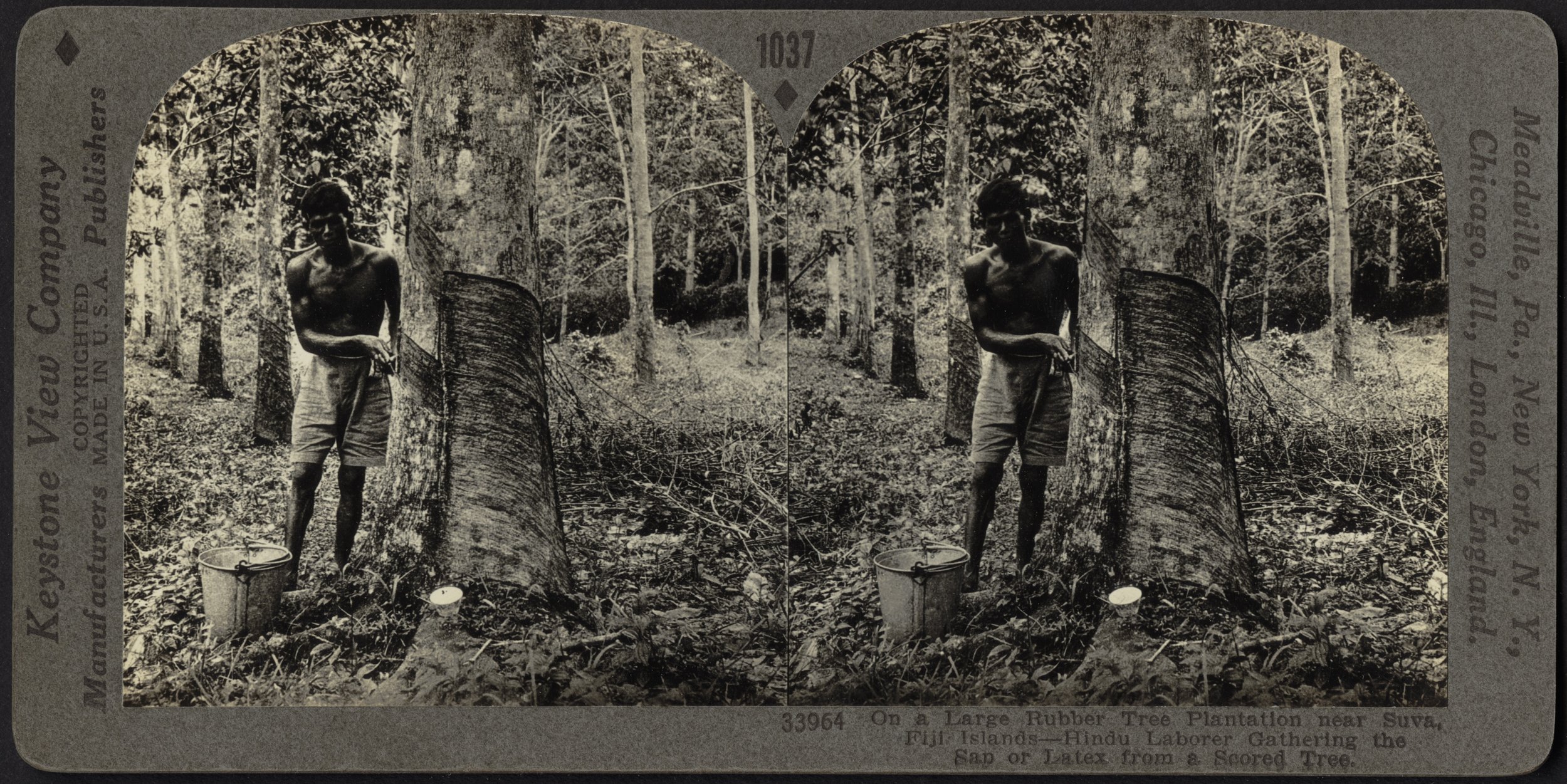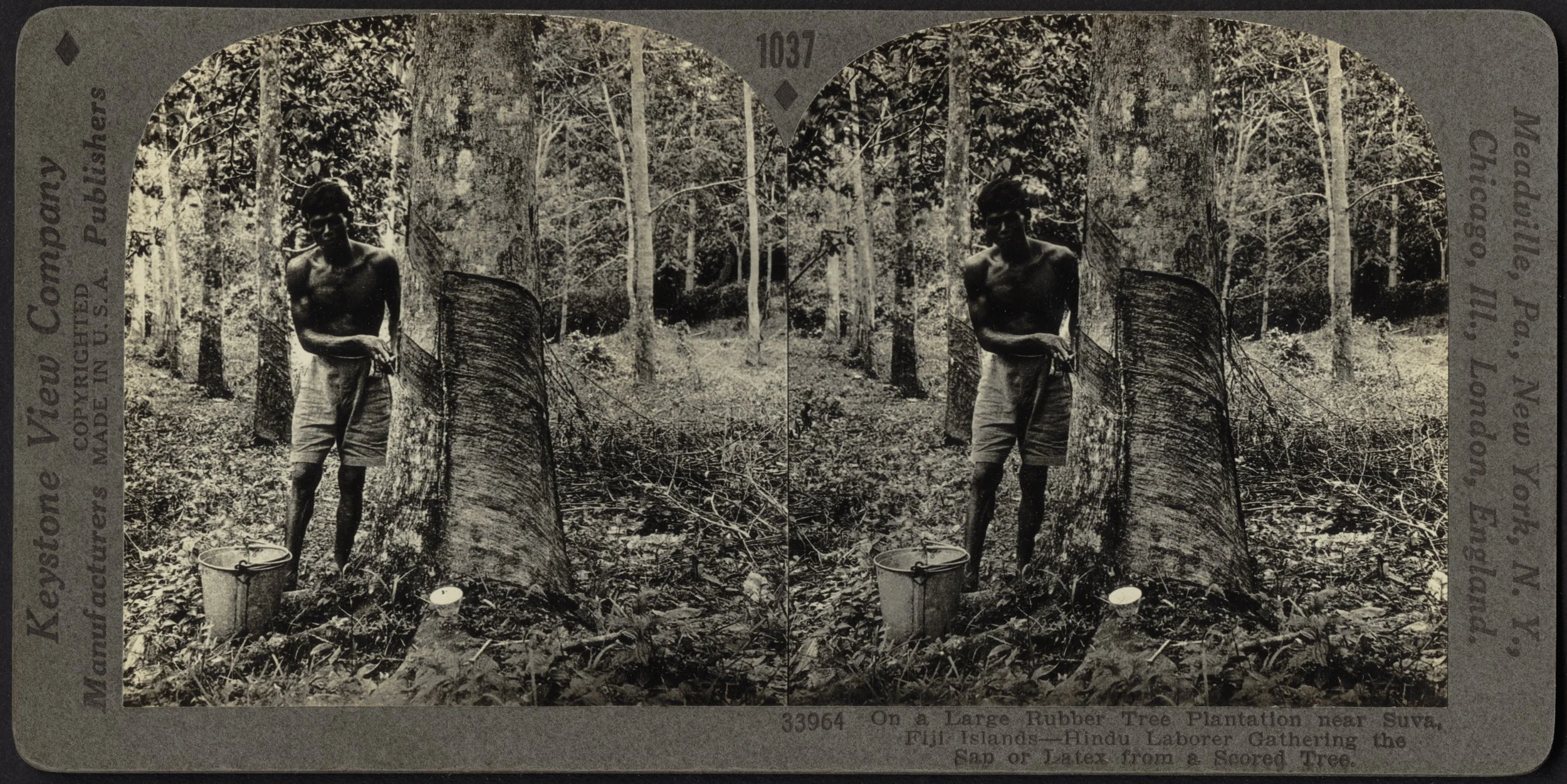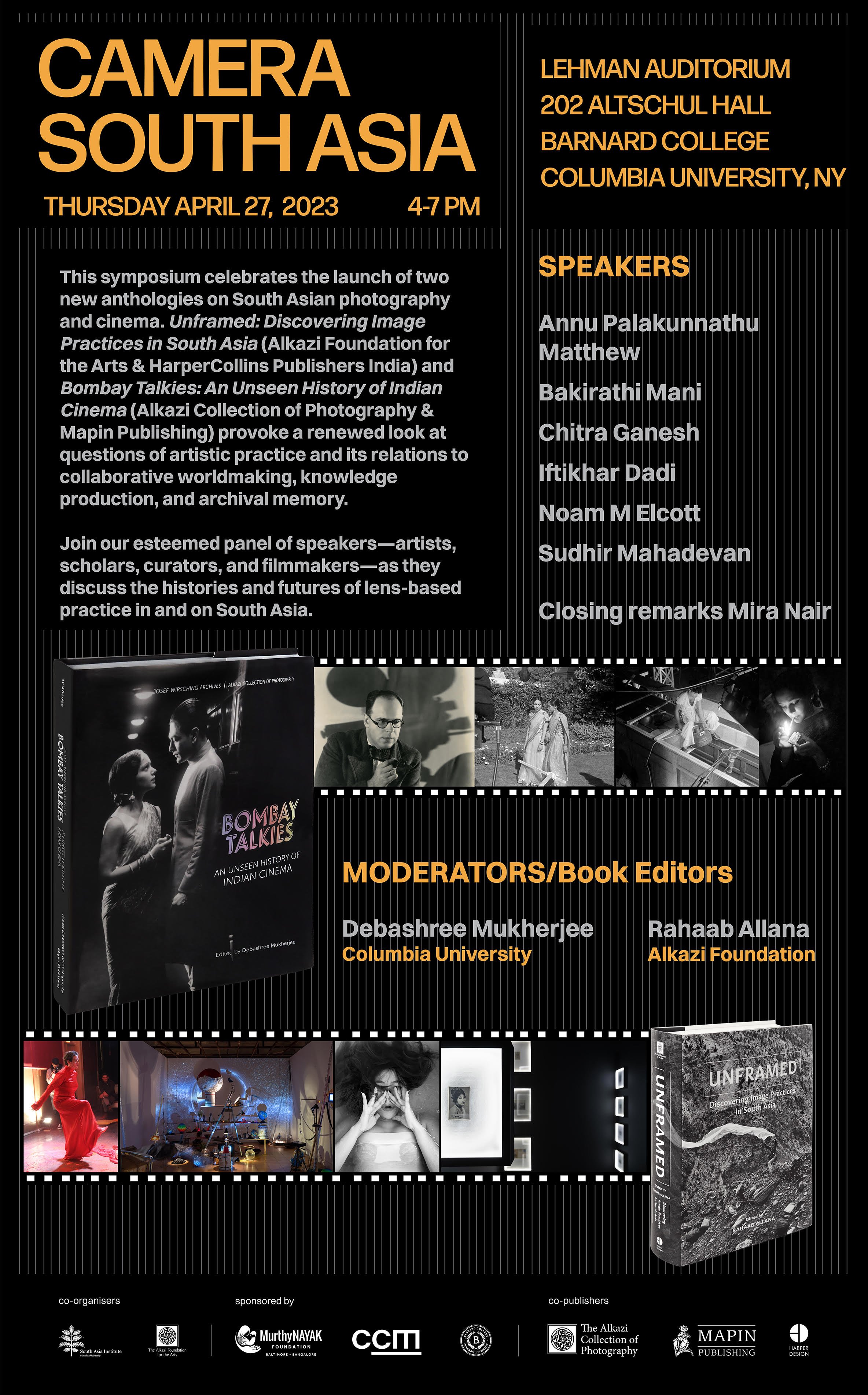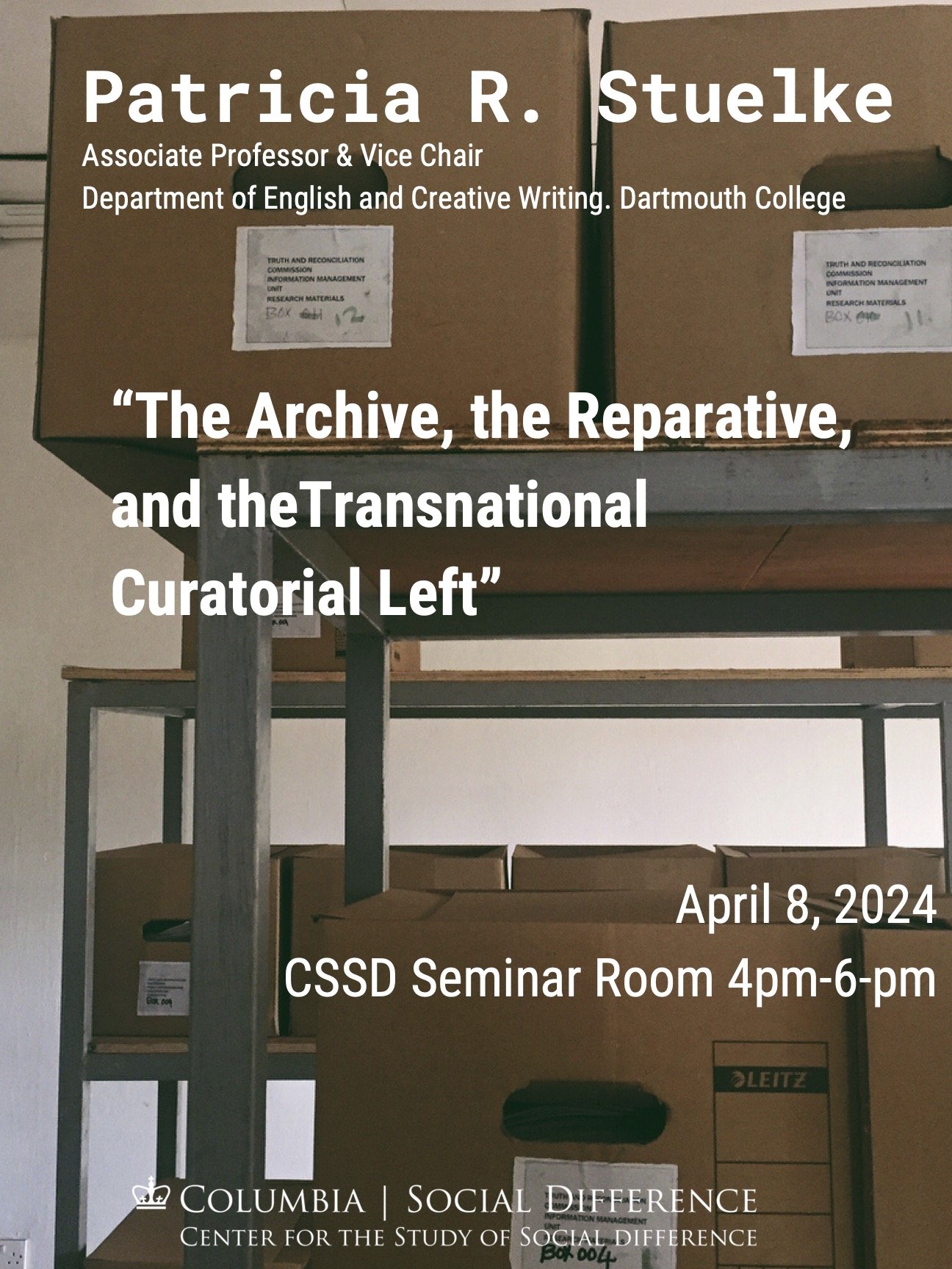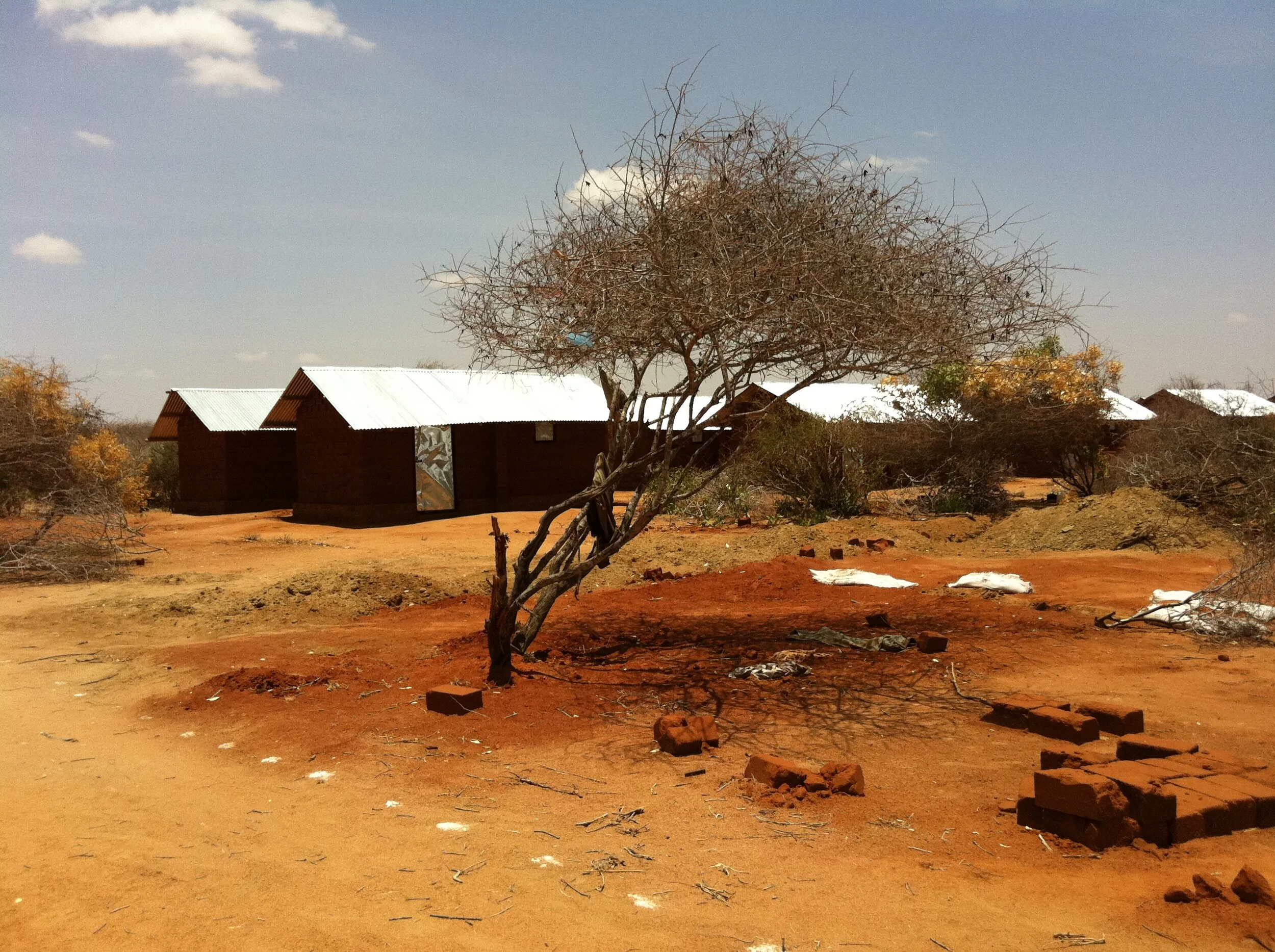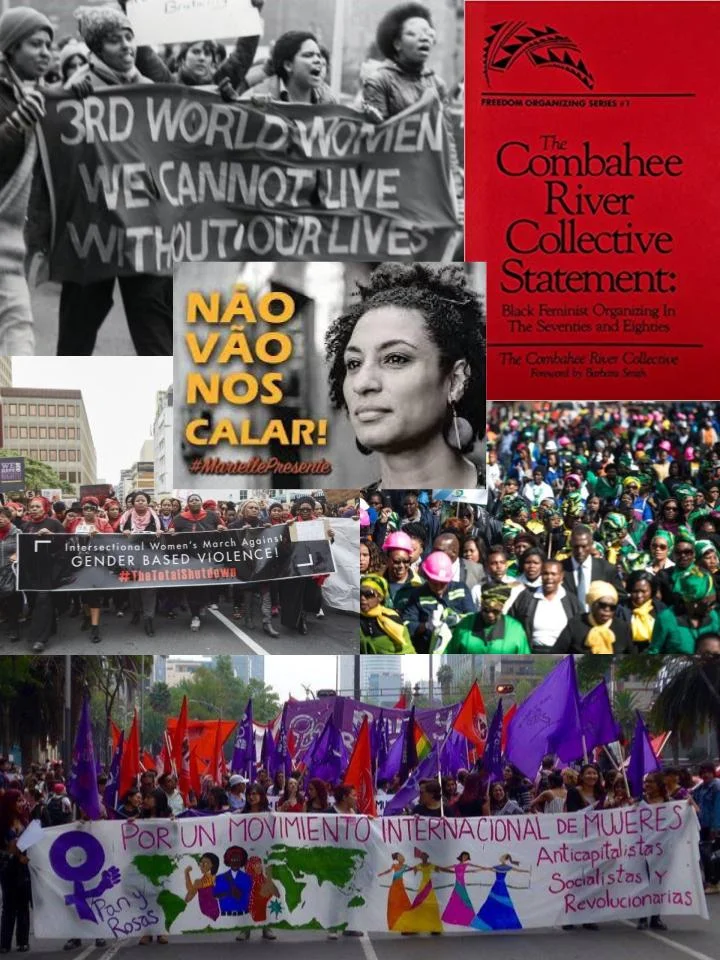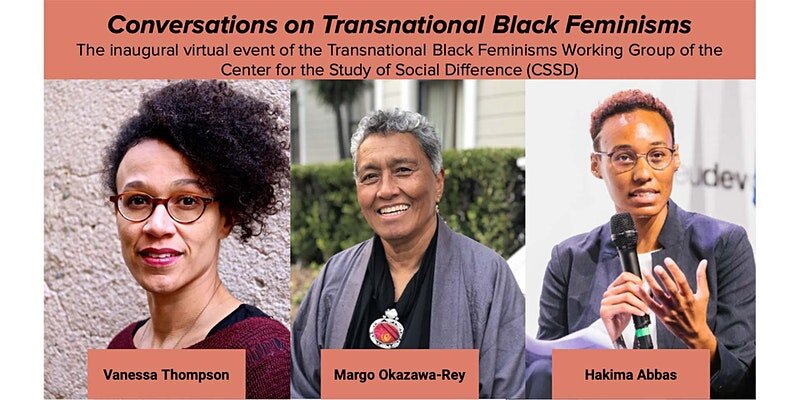Alternative Modes of Being
We are scholars across disciplines focusing on Asia and Africa who seek to bring premodern knowledge traditions, epistemologically decolonized, into dialogue with social and natural scientists focused on the interlocking crises of capitalism, colonialism, and climate chaos. We hope, ultimately, to be able to think towards alternatives to models of analysis and practice that have rendered scholarship and art irrelevant to our times, and to modes of life leading to the destruction of our planet.
Project Director: Mana Kia
Working Group Members: David Lurie (EALAC), Alison Vacca (MESAAS), John Phan (EALAC), Ali Karjoo-Ravary (History), Jonathan Peterson (MESAAS), Amir Izadpanahi (MESAAS)
Alternative Modes of Being unites scholars across disciplines focusing on Asia and Africa who seek to bring premodern knowledge traditions, epistemologically decolonized, into dialogue with social and natural scientists focused on the interlocking crises of capitalism, colonialism, and climate chaos. Decolonialization did not, and cannot, end with political independence. It requires a conceptual regeneration. This project pursues such regeneration by reconnecting with earlier modes of knowledge to critically reengage lost ideas that can potentially contribute to current issues. Temporal, disciplinary, and institutional divides often stymie rich debates of scholars engaged in analysis of the present from trickling into the purview of premodernists. By the same token, scholars engaged with the present rarely engage in any systematic way with the premodern worlds. Ultimately, we cannot fully rethink substance, however, without also rethinking academic form, why it is essential that artists, photographers, and creative writers join the conversation. Our three main themes are around questions of 1) Growth and Prosperity, 2) Self and Social World, and 3) Beauty and Ethics.
Creative Resistances: Arts and Activism in the Americas
We bring together scholars, activists, and artists from across the Americas to explore modes of creative resistance. We aim to analyze how art and activism intersect, considering the diverse contexts of Latin America, the Caribbean, the United States, and Canada. We investigate how artistic interventions are utilized to imagine alternative futures amidst the rise of far-right governments and repressive political regimes. Our inquiry seeks to understand the continuity and divergence of creative tactics in political resistance, comparing contemporary approaches with historical precedents.
Project Co-Directors:
María José Contreras (Associate Professor, School of the Arts, Theatre, Columbia University)
Jacqueline García Suárez (Assistant Professor, Department of Latin American and Iberian Cultures,
Columbia University)
Working Group Members:
Maja Horn (Associate Professor of Spanish & Latin American Cultures, Barnard College)
Graciela Montaldo (Professor of Latin American and Iberian Cultures, Columbia University)
Kay Kemp (PhD student in Theatre and Performance Studies, Columbia University)
Creative Resistances: Arts and Activisms in the Americas convene a group of scholars, activists and artists from Latin America, the Caribbean, the United States, and Canada interested in studying, practicing and rehearsing modes of creative resistance. We propose to look at the entanglement of arts and activisms from a hemispheric perspective that considers regions of the Americas in their diversity and specificity but also in relation to one another. We will engage with artistic interventions employed as means to experiment with alternative modes of conviviality that serve to the collective reimagination of otherwise futures. We aim to examine how the entanglement of arts and activisms serves as a response to the ascent of far-right, ultra-conservative governments in the Americas, as well as to the repressive political realities of leftist states such as Cuba, Venezuela and Nicaragua. Focused in recent cases and experiences, we are interested in thinking and experimenting with the continuities and ruptures with previous uses of creative tools in political resistance in the Americas, asking in what ways the current use of artistic tactics is similar and different from the historical deployment of aesthetic gestures to mobilize political action?
The working group methodology will resist the distinction of practice-based research, arts practice and scholarship by facilitating diverse modes of engagement such as discussions, gatherings and workshops. The group will also challenge disciplinary geopolitics by embracing a fluid interdisciplinary approach that puts in conversation the fields of Caribbean Studies, Latin American Studies, Decolonial Theory, U.S. Latinx Studies, Indigenous studies, performance studies, visual culture studies, among others.
Seeds of Diaspora
‘Seeds of Diaspora’ will convene an interdisciplinary group of academics and practitioners. Together, we will select a short list (5-8) of non-cultivated plants found in New York City, and consider how they each embody native and non-native landscape imaginaries.
Seeds of Diaspora
Project Co-Directors: Lynnette Widder & Ralph Ghoche
Project Coordinator: Fern Thompsett
‘Seeds of Diaspora’ will convene an interdisciplinary group of academics and practitioners. Together, we will select a short list (5-8) of non-cultivated plants found in New York City, and consider how they each embody native and non-native landscape imaginaries. We will link each plant and its botanical descriptors to maps, images, practices, and texts that communicate ecological, herbalist, culinary, agricultural, literary, artistic, anthropological, and other cultural traditions. In an era of fraught nationalism, mass migrations and climate change, as the boundaries between ecosystems and society are constantly reconfigured, we will emphasize the potential of plants to connect and to describe cultural landscapes past, present, and future.
Events
Upcoming
Past
News
Image credit: Lynnette Widder
Fellows
Afro-Nordic Feminisms
This working group is a Black feminist research and pedagogical project that centers Afro-Nordic identity, culture, social movements, and social justice organizing. We are calling this initiative Afro/Nordic/Feminisms, as we are interested in the areas of inquiry and methodologies named by the interplay between the three terms.
Afro-Nordic Feminisms
Project Co-Directors: Monica L. Miller and Nana Osei-Kofi
Graduate Coordinator: Ayesha Verma
This working group is a Black feminist research and pedagogical project that centers Afro-Nordic identity, culture, social movements, and social justice organizing. We are calling this initiative Afro/Nordic/Feminisms, as we are interested in the areas of inquiry and methodologies named by the interplay between the three terms.
Afro-Nordic Studies is, at best, a nascent field and largely unsupported by Nordic universities and academic institutions. “Race” as a category of identity is contested in the region; governments do not collect statistics on racial identity and do not recognize “race” as a category from which to make legal claims for equity and against discrimination. “Ethnicity” often stands in for race and racial difference is cathected to immigration; this results in the impossibility of Afro-Nordic identity. Vocabularies for talking about race and racialization have had to be borrowed from other languages and geographies and Nordic-specific terms are only just now emerging. This structural context has the effect of invisibilizing Afro-Nordic people, who are hypervisible minorities due to the overwhelming homogeny and whiteness of the Nordics. Their very presence questions national identity, reveals repressed colonial histories and eugenicist projects, and more contemporary global realities of migration and war. And yet, people of African descent in the Nordics, both native born and immigrants, are living Black lives that are deeply emplaced in Nordic geographies and histories, as well as connected to other Black communities in Europe, Africa, the Americas, and around the world. Afro-Nordic people and communities are actively creating and assembling archives of their presence and possibility as Nordic citizens and Black people in the diaspora.
Members of the group work on scholarship from across the Nordic countries, are of different generations, have worked inside and outside of the academy, and have different disciplinary orientations to the work. As mentioned above, the lack of recognition of race and insufficient vocabulary to talk about race has meant that many of our Nordic colleagues working in this area have faced difficulties securing material and intellectual support and mentoring. Many live, study, and work in the US. One aim of this group is to create a community of practice and a set of resources for each other and the next generation interested in Afro/Nordic/Feminist studies.
Events
Upcoming
Past
Image credit: Pexels, Stein Egil Liland, “Dramatic Sky over Mountains”
Fellows
News
Refugee Cities: Urban Dimensions of Forced Displacement
We are a group of scholars from across disciplines and institutions interested in bringing together the increasingly interrelated fields of Refugee Studies and Urban Studies. While there are few scholars or institutions that explicitly and intentionally consider these fields together, the expanding number of internationally displaced people settling in cities and interacting with and in urban spaces across the globe merits sustained engagement and analysis.
Refugee Cities: Urban Dimensions of Forced Displacement
Project Co-Directors: Amy Chazkel and Bahia Munem
Project Coordinator: Daniela Perleche Ugás
Working Group Members: Mae M. Ngai, Naor Ben-Yehoyada, Hiba Bou Akar, Giorgia Mirto, Achilles Kallergis, Anooradha Iyer Siddiqi, A. George Bajalia, Alex Aleinikoff, Amin Younes Aoussar, Emma Shaw Crane, Matthew DeMaio, Nadia Latif, Fanny Julissa García, Neni Panourgiá, Faime Alpagu, Lisa Jahn and Kian Tajbakhsh
US State Department photograph, aerial view of the Za’atri Refugee Camp, Jordan (July 18, 2013) (public domain, accessed on Flickr.
We are a group of scholars from across disciplines and institutions interested in bringing together the increasingly interrelated fields of Refugee Studies and Urban Studies. While there are few scholars or institutions that explicitly and intentionally consider these fields together, the expanding number of internationally displaced people settling in cities and interacting with and in urban spaces across the globe merits sustained engagement and analysis. In this CSSD working group, our discussions and public programming will center the social, political, and material interrelatedness of refugees and cities in varying geographical areas. The group’s core members include researchers and educators who have come together to collaborate on various projects at the intersection of urban and refugee studies, including public
symposia, and to engage in mutually enriching discussions and forge lasting intellectual and professional ties.
Cities are generally conceptualized as permanent (made of brick, mortar, and metal), modern, and planned. They are governed by nation-states and are part of complex networks of global capital and knowledge. In contrast, the spaces where refugees settle (or are settled) are generally considered temporary. However, this does not match the actual experience of refugees, since many come from and inhabit cities. Indeed, refugee communities have become involved in urban housing movements in places like São Paulo, a city with a long history of urban occupations and informal settlements. Beginning in the aughts, “urban refugee” surfaced as a category of concern in policy (UNHCR 2009; 2012) and humanitarian discourses but remains under-explored in scholarly research, especially since the majority of the world’s refugees and internally displaced people (IDPs) live in cities. Conversely, refugees displaced by persecution, violence, and war(s) often spend open-ended periods in sprawling settlements that are functionally urban places and actively take part in place-making processes generally associated with permanent municipalities. Domiz camp in northern Iraq (refugee republic) is a good example. It was initially designated as a temporary space to host Syrian refugees fleeing civil war and has become an increasingly permanent and elaborate urban space (see also Burj el-Barajneh in Beirut). A central aim of this interdisciplinary working group is to reflect collectively and critically about the different analytical levels at which to examine the lives of internationally displaced people and communities, who, while often stateless, are inhabitants of “city-states,” nation-states, and other complex, overlapping jurisdictions. We address such pressing issues of humanistic (and humanitarian) concern in the status and deep history of sanctuary cities, the extent of and limitations to national sovereignty, and struggles for the right to the city.
We are interested in examining these urban sites as spaces of reception, rejection, hypervisibility, and invisibility. The manner in which refugees manage and are managed in these sites are also often structured by social relations (community, labor, family, gender) and formal and informal economies. Moreover, a cursory look at the response in cities to provide refuge and shelter to Afghan refugees in late summer 2021 (or Syrian refugees in 2015) versus the response to Ukrainian refugees in the current crisis (and the distinction in treatment at border crossings toward white Ukrainians and African and South Asian students that had been in the country) recenters the racial hierarchies in these processes. As a group that includes scholars whose research has investigated cities both past and present, we are interested in thinking about the ways in which internationally displaced people settle in cities as part of a long history of the improvised, often dissident use of urban space, and the historical construction of social inequality across different geographic scales.
Events
News
Upcoming
Past
Extractive Media: Infrastructures & Aesthetics of Depletion
Questions of resource extraction are now front and center in almost every academic discipline across the humanities and social sciences. Propelled by the urgency of planetary climate crisis, scholars are reinventing their core research questions to ask how we came to this pass, and also where do we go from here? The Extractive Media working group seeks to take this conversation beyond fossil fuels to track the ways in which energy economies span continents and oceans, differentially affect unequal bodies and lives, and bleed across disparate sites such as the coal mine and the computer screen.
Extractive Media: Infrastructures & Aesthetics of Depletion
Project Co-Directors: Zeynep Çelik Alexander and Debashree Mukherjee
Project Coordinator: Hannah Rachel Pivo
A "Hindu laborer" gathers sap from a rubber tree on a plantation in Fiji. Stereograph card published by Keystone View Company, NY, c. 1880.
Questions of resource extraction are now front and center in almost every academic discipline across the humanities and social sciences. Propelled by the urgency of planetary climate crisis, scholars are reinventing their core research questions to ask how we came to this pass, and also where do we go from here? The Extractive Media working group seeks to take this conversation beyond fossil fuels to track the ways in which energy economies span continents and oceans, differentially affect unequal bodies and lives, and bleed across disparate sites such as the coal mine and the computer screen. We begin with the question of how media forms (print, architecture, photography, cinema, or, more recently, computational media) have historically contributed to material and imaginative modes of extraction, and, further, how we might turn to these very forms to find new possibilities for equitable futures?
Readings
Publications
See below a list of recent publications by working group members:
Debashree Mukherjee (2022). Energy and Exhaustion in a Coal Melodrama: Kaala Patthar (1979), in Ecocinema: Theory & Practice II, Eds. Stephen Rust, Salma Monani, Sean Cubitt. Routledge, pp. 52-69.
Zeynep Çelik Alexander, “Nineteenth-Century Alchemy: Mineral Statistics circa 1850,” Perspecta 55 (Spring 2023), pp. 30-43.
Events
Upcoming
Past
Fellows
News
Recovery
In accordance with the CSSD’s designated focus on Imagining Justice, our working group critically considers the circulations of “recovery” in arenas such as biomedicine, pandemic politics, climate change, economics, and other fields of governance. Aligned with current scholarly and activist efforts to think through the transformations in social relations required for meaningful versions of repair and recuperation, we are particularly interested in challenging presumptions of the feasibility/desirability of a return to a prior normative state. Instead, we aim to consider how a transformative justice approach might spur new imaginations of not only social justice but also embodiment, health, individual well-being and collective dis-ease.
Recovery
Project Co-Directors: Elizabeth Bernstein and Rebecca Jordan-Young
Project Coordinator: Chloé Samala Faux
Working Group Members: Nadja Eisenberg-Guyot, Kerwin Kaye, Salma Ismaiel, Samuel Kelton Roberts, Jr., Marisa Solomon, Miriam Ticktin, Jackie Orr, Amy Zhou
Credit: used with permission from account owners of @healthcareforthepeople2020 on Instagram.
What histories have given rise to the concept of “recovery,” and explain the apparent fungibility of this concept across such broad domains of social life? In accordance with the CSSD’s designated focus on Imagining Justice, our working group critically considers the circulations of “recovery” in arenas such as biomedicine, pandemic politics, climate change, economics, and other fields of governance. Aligned with current scholarly and activist efforts to think through the transformations in social relations required for meaningful versions of repair and recuperation, we are particularly interested in challenging presumptions of the feasibility/desirability of a return to a prior normative state. Instead, we aim to consider how a transformative justice approach might spur new imaginations of not only social justice but also embodiment, health, individual well-being and collective dis-ease. Because the grounding metaphors for “recovery” in social and political life derive from biomedical discourse, and because technoscientific solutions are often deemed to be integral to modes of recuperation, our proposed method for addressing these questions is F/ISTS (feminist intersectional science and technology studies). Exploring notions of "recovery" through the dual lenses of transformative justice and feminist/intersectional STS, we will pay close attention to the reciprocal relations between techno-scientific practices and knowledges, on the one hand, and multiple intersecting axes of power on the other.
Events
News
Upcoming
Past
Prison Education and Social Justice
This project brings together faculty and graduate students with alums of Columbia’s prison education programs to think together about how to strengthen the courses and other educational opportunities Columbia presently offers to incarcerated students; to develop new courses and faculty training supports for those initiatives; and to think about and develop a more systematic set of classes to be offered to Columbia and Barnard undergraduates dealing with social justice and its relationship to carceral systems.
Project Director: Jean Howard
Graduate Assistant: Patrick Anson
The aim of this project is to bring together Barnard and Columbia faculty and graduate students with alums of Columbia’s prison education programs to think together about how to strengthen the courses and other educational opportunities Columbia presently offers to incarcerated students; to develop new courses and faculty training supports for those initiatives; and to think about and develop a more systematic set of classes to be offered to Columbia and Barnard undergraduates dealing with social justice and its relationship to carceral systems.
News
Events
Upcoming
Past
Fellows
Motherhood and Technology
The Motherhood and Technology working group will explore how technological innovations have radically transformed the biological and social experience of motherhood in recent decades. Advances in genomic and reproductive care, the circulation of novel kinship structures, the entrenchment of existing global networks of power and privilege, and the politics of contested bodily sites mark this emerging constellation.
Motherhood & Technology
Project Co-Directors: Rishi Goyal, Arden Hegele
Graduate Coordinator: Niyati Shenoy
The Motherhood and Technology working group will explore how technological innovations have radically transformed the biological and social experience of motherhood in recent decades. Advances in genomic and reproductive care, the circulation of novel kinship structures, the entrenchment of existing global networks of power and privilege, and the politics of contested bodily sites mark this emerging constellation. Technological progress and development is often seen as the driver of these changes, but the revolution in motherhood is as much a product of changes in other domains: ethics, social structures, aesthetics, and lived experiences. Our group is motivated to understand how medical technologies have changed—and have been changed by—the experience of motherhood in a global context.
The field is rich with paradoxes. Cryogenic technologies, such as egg freezing and embryo storage, have afforded women new freedoms in choosing when to become mothers, yet the changing demographics of motherhood also raise troubling questions about the pressures of capitalism and the extension of worklife. Surrogacy has become a mainstream technology that affords biological parenthood to couples who might not otherwise have a child, yet the technology operates in a financial market that creates sharp global inequalities, with the burden of surrogacy often taken on by women of color in the developing world. Laboratory and biotechnical developments have produced unprecedented means to edit genetic material, but the unexamined use of new technologies (such as CRISPR) has led to ethical violations around the world. Meanwhile, advanced reproductive technologies have created new social forms that effectively evolve cultural norms, including new social and legal categories of parent and family – yet such technologies also reproduce market pressures and heteronormative family structures, perhaps vitiating counter-cultural practices. These and other dilemmas inform our group’s work in exploring and informing scholarship around motherhood and technology.
Foremost to our exploration is our strong conviction that technology is not neutral. Rather, we believe (following Heidegger) that technology operates as a form of “un-concealment” that reveals the “forcing into being” of culture. Thus, we are particularly interested in how the production of and access to such first-world biomedical technologies of motherhood both index and create broader cultural trends across what Arlie Hochschild has called “global care chains,” in which the burden of care is borne disproportionately by women of color and women in the developing world. We are motivated, then, to consider how technologies of motherhood operate among poor and working class women, both internationally and within the first world. While India has emerged as a global nexus of commercial surrogacy, in New York City and at the US southern border alike, technologies controlling motherhood, including monitoring technology, are used to regulate incarcerated and paroled women. Fundamental to our exploration is our conviction that these very different forms of technological intervention are working together to produce a global reimagination of motherhood.
As we explore these questions, we are guided by the interdisciplinary approach of the medical humanities. Medical humanities offers both a set of methodological approaches to address such challenges, and a broad umbrella under which to study the mutual influences of medico- scientific ideas and cultural/aesthetic practices. Medicine, from intimate care to public health policymaking, has much to contribute to a humanistic understanding of the social role of motherhood; meanwhile, approaches that emerge from a humanistic framework can enrich those coming from the physician’s black bag. The expansive view of the medical humanities will allow the group to develop a scholarly intervention into debates around technology and motherhood, while also producing a cultural artefact that narrativizes these dilemmas, and their solutions, for the public.
Bibliography
This bibliography gathers sources relevant to the topic of motherhood and technology as each sphere has come to impact the other in dimensions personal, social, political and financial. The bibliography represents mostly recent publications, and the sources range in discipline from the social and hard sciences, to journalism and literary nonfiction, to fiction, poetry, and film. Finally, the document concludes with a list of keywords that might simultaneously guide readers as they choose where to begin reading and as they start to connect readings from across the list.
Review the working group bibliography here.
News
© Loie Hollowell, courtesy Pace Gallery.
Events
Upcoming
Past
Fellows
Insurgent Domesticities
Insurgent Domesticities brings into focus the insurgent environments, objects, and practices that make up the maintenance, creation, labor, and intimacies of home. Our collective investigates the more processual aspects of domesticity, to interrogate the politics of ‘home,’ through histories of solidarity, disobedience, stealth, and militancy, from the scale of the clothesline to that of the state.
INSURGENT DOMESTICITIES
Project Co-Directors: Anooradha Iyer Siddiqi and Neferti X. M. Tadiar
Project Coordinator: Nadrah Mohammed
Managing Editor: Aastha D
‘Home’ has been used as a boundary-forming device to identify, homogenize, normalize and exclude. Composed of family and nation, and attendant notions of their sanctity, ‘home’ is no longer open to reinterpretation and reconfiguration; it is pressured as a lived space. Insurgent Domesticities brings into focus the insurgent environments, objects, and practices that make up the maintenance, creation, labor, and intimacies of home. Our collective investigates the more processual aspects of domesticity, to interrogate the politics of ‘home,’ through histories of solidarity, disobedience, stealth, and militancy, from the scale of the clothesline to that of the state.
The Insurgent Domesticities working group is committed to liberatory historiographical approaches and scholarly caregiving, orientations that transcend ideological frames deploying ‘domesticity’ to organize, limit, or subjugate life, time, people, and places, from the non-male figure to the non-capitalistic landscape. It draws on practices that emerge from and constitute interiority, which transform the figurations, materiality, and narrations of ‘home’ and ‘domesticity’ within the present worldwide protectionist climate, in which ‘home’ is still a fiercely pursued, maintained, and guarded space. Dissident domesticities, bound up in questions of governance, global economies, (geo)political borders, war, labor, and ecological crisis, call for emancipating, subversive, and collaborative research approaches that straddle or sit between territories, institutions, states, and national space. Through insurgent domesticities of laundry, gardens, cats, kitchens, the home office, the migrant camp, the kindergarten, the settlement, the housing block, the border wall, the reserve, or the reservation, we center histories of the active construction of home through occupancy, the making of new territories by transgressing boundaries, and the transcending or transforming of oppressive domestic structures.
Insurgent Domesticities indexes and reveals inequalities and injustices cohering social, cultural and political aspects of domesticity. Because domesticity is involved in the production of identity, security, comfort, and belonging, as well as strategies necessary to maintain the status quo, it serves as a double-edged tool that can be confining or emancipatory in its different guises. To combat the pliancy of its shapeshifting between safeguarding and critiquing notions of family and nation, migration and home, our collective proposes the fundamental understanding that domesticity is a politicized field of many interdependencies, from the sociospatial to the material and aesthetic, which demand regular negotiation and theorization.
Insurgent Domesticities is a working group under the CSSD theme, Women Creating Change, which engages distinguished feminist scholars from diverse fields who focus on contemporary global problems affecting women and on the roles women play in addressing these problems.
Resources
Publications
Anooradha Iyer Siddiqi, Architecture of Migration: The Dadaab Refugee Camps and Humanitarian Settlement (Duke University Press, 2023).
Neferti X.M. Tadiar, Remaindered Life (Duke University Press, 2022).
Gil Z. Hochberg, Becoming Palestine: Toward an Archival Imagination of the Future (Duke University Press, 2021).
News
Ifo 2 camp, Dadaab, Kenya. These shelter prototypes were designed and built as part of an international humanitarian initiative to expand a refugee settlement. Before the camp was officially populated, they were among the structures the police used to enable clandestine dwelling and sex work. How do we understand a homemaking of coercion and collaboration? How do we think with the paradoxes of insurgent domesticities?
Photo by Anooradha Iyer Siddiqi.
Fellows
Events
Upcoming Events
Past Events
INSURGENT DOMESTICITIES GENERAL EDITORIAL MEETING
Nov. 17, 2023
INSURGENT DOMESTICITIES GENERAL EDITORIAL MEETING
Sep. 23, 2023
INSURGENT DOMESTICITIES GENERAL EDITORIAL MEETING
Jun. 9, 2023
INSURGENT DOMESTICITIES GENERAL EDITORIAL MEETING
Apr. 14, 2023
INSURGENT DOMESTICITIES GENERAL EDITORIAL MEETING
Mar. 24, 2023
INSURGENT DOMESTICITIES GENERAL EDITORIAL MEETING
Mar. 20, 2023
INSURGENT DOMESTICITIES GENERAL EDITORIAL MEETING
Feb. 10, 2023
INSURGENT DOMESTICITIES GENERAL EDITORIAL MEETING
Jan. 13, 2023
INSURGENT DOMESTICITIES GENERAL EDITORIAL MEETING
Dec. 2, 2022
INSURGENT DOMESTICITIES GENERAL EDITORIAL MEETING
Nov. 11, 2022
INSURGENT DOMESTICITIES WRITING RETREAT
Sept. 29, 2022
SESSION VIII. GUEST: ZAHRA MALKANI AND SHAHANA RAJANI
Mar. 25, 2022
SESSION VII. GUEST: CHRISTINA SHARPE
(postponed)
SESSION VI. GUEST: ANURUPA ROY
Nov. 05, 2021 (rescheduled to February 11, 2022)
SESSION V. GUEST: HUDA TAYOB
Oct. 15, 2021
SESSION IV. QUEER AND FEMINIST CARE
May 14, 2021
SESSION III. MATERIAL INTIMACY
Apr. 23, 2021
SESSION II. ESTABLISHING THE INTERIOR
Mar. 19, 2021
SESSION I. CONCEPTS, EPISTEMOLOGIES, FEMINISMS
Feb. 5, 2021
INTAKE MEETINGS
Oct. 13-25, 2020
Black Atlantic Ecologies
The Black Atlantic Ecologies group supports and elaborates scholarship that centers the enduring effects of coloniality and the dynamic power of protest in African diasporic confrontations with environmental crisis. This group poses a single central question: How might Black Atlantic experience with peril, with perishment and with premature death offer a rubric for thinking futurity, including reproductive futurity, in a moment of environmental collapse?
Black Atlantic Ecologies
Project Co-Directors: Vanessa Agard-Jones, Marisa Solomon
Project Coordinator: Chazelle Rhoden
The waters are rising. The earth is warming. Species are perishing. The world is ending.
Apocalyptic pronouncements about the refiguring of the Earth are everywhere around us. Now commonplace, predictions and pronouncements about the era that geologists have called the Anthropocene remind us that we are at the end of the world as we know it, and that global warming, rising sea levels, the acidification of the oceans, crisis-rates of species extinction and ever-escalating social disasters masked as natural ones are but some of the more visible markers of the imperilment of this planet. Though they have pretensions to inclusion, many of these emergent narratives mobilize ideas about the human, the animal and the environment that universalize rather than particularize, occluding the fact that these categorizations have long been shot through with histories of normative violence.
The Black Atlantic Ecologies group supports and elaborates scholarship that centers the enduring effects of coloniality and the dynamic power of protest in African diasporic confrontations with environmental crisis. Taking as our provocation the refiguring of human and nonhuman ecologies occasioned by the transatlantic slave trade, we seek to understand what Nadia Ellis has called, riffing on José Muñoz, “the queer work of raced survival” as we come to grips with contemporary dimensions of anthropogenic climate change. As inspiration for the work that we undertake together, we ask after visions for survival and justice that are grounded in Black queer, Black feminist, and antiracist responses to the subjugation of the earth as well as of our human and nonhuman cotravelers. And given the crossing of linguistic and imperial zones that the transatlantic slave trade occasioned, we pay particular attention to the divergences and synergies among anglophone, francophone, hispanophone, and lusophone analyses of our predicament as we articulate our conditions as well as the political possibilities on our horizons. This group poses a single central question: How might Black Atlantic experience with peril, with perishment and with premature death offer a rubric for thinking futurity, including reproductive futurity, in a moment of environmental collapse?
IMAGE: Photo by Alyssa A.L. James, Coast of St. Lucia, 2016
The Black Atlantic Ecologies
working group is funded by the
Earth Institute.
Events
Fellows
News
Migrant Personhood and Rights: Crises of Recognition
This working group will explore the long-standing global crisis of recognition at the heart of anti-immigrant ideas and policies. It will focus on the discourses, practices, and institutions that actively deny immigrants recognition, as well as those discourses, practices, and institutions that recognize, support, and affirm migrants and their rights. They will engage with these issues in the areas of civics and education, immigration law and policy, and the characterization and treatment of migrants and refugees.
Migrant Personhood and Rights: Crises of Recognition
Project Co-Directors: Thea Abu El-Haj, JC Salyer
Project Coordinator: Yasmin Naji
How does a nation-state reach the point where it becomes national policy to remove thousands of children from their parents as a deterrent to seeking asylum? How does a nation-state reach the point where it prosecutes individuals for providing water to migrants in a desert? How does a nation-state reach the point that it bans people from entering the country based on their religion?
During his first week in office, Donald Trump issued an executive order that banned foreign nationals from seven majority-Muslim countries from entering the United States. In response, there were spontaneous protests around the country and broad condemnation of the sweeping anti-immigrant nature of the policies. This pattern repeated in the succeeding months, as the executive branch continued to focus on anti-immigrant initiatives, such as family separation on the border and policies limiting receipt of public benefits by immigrants. Despite this, large segments of the public remain favorable to immigrants and immigration and perennial conflicts over immigration policy have increased, even resulting is a 35-day shutdown of the federal government.
Our project addresses anti-immigrant sentiments and policies by engaging both academic research and the expertise of community-based migrant advocacy organizations to develop novel questions and approaches that address current immigration issues. The project will culminate with a series of public interventions that allow academics, activists, artists, and advocates to communicate and cooperate in imagining justice and recognition for migrants.
News
Image by the Undocumented Migration Project.
Events
Fellows
Environmental Justice, Belief Systems, and Aesthetic Experiences in Latin America and the Caribbean
In response to the increasing power of the evangelical right in Latin America and the Caribbean, this project traces renewed interest in traditional and indigenous belief systems that have fueled struggles for environmental justice. These struggles rely on expressive and aesthetic forms such as ritual, song, and performance. These forms, in turn, give shape to new modes of imagining environmental justice. This comparative project is undertaken by a working group of scholars, artists and activists from Columbia University in collaboration with colleagues from Argentina, Brazil, Colombia, Cuba and Puerto Rico.
Environmental Justice, Belief Systems, and Aesthetic Experiences in Latin America and the Caribbean
Project Co-Directors: Ana Ochoa, Ron Gregg
Project Coordinator: Julia Delgadillo
Struggles around environmental conflicts have increased dramatically in Latin America and the Caribbean over the past few decades, affecting and displacing indigenous populations, Afro-descendants, women, children, and peasants. Communities have to confront the transnational increase of agribusiness, hydroelectric projects,
mining corporations, systematic food injustice, and their entanglement with the drug war and localized armed conflicts. Such struggles are taking place amidst dramatic events provoked by climate change as well as the rise of extremist governments in the Americas, supported by the evangelical right, increasing the number of climate, alimentary, and war refugees and asylum-seekers.
The presence of evangelical missions among indigenous peoples, especially among recently contacted groups in need of assistance, is pervasive in the Amazon, in Colombia, and in Puerto Rico, and has augmented exponentially during the last decades. In reaction to persistent attempts at conversion by native and foreign missionaries, a new shamanistic movement and alliance has taken shape in several regions of Northwestern Amazonia, in Colombia, Peru and Brazil, and new transnational configurations of Afro-Cuban and Afro-Brazilian religions have emerged. A potent cosmopolitical alliance is taking shape, one whose ritual efficacy consists in
the creation of new shared artistic forms.
Our group proposes to study current struggles for justice that are articulated through the expressive cultures and aesthetic experiences of local communities in Latin America and the Caribbean. The resurgence and mobilization of what have historically been called traditional, indigenous, and Afro-descendant expressive forms-- songs, rituals, images, objects, feasts, culinary arts, and ceremonies -- has been dramatic. Since the mid-1980s, we have also seen the rise of an indigenous film movement in different countries in Latin America. Technologies such as loudspeakers, microphones, hard drives, and other media are changing public and private space. New alliances between artists, scholars, and ritual specialists like shamans or babalaos (e.g. in Colombia, Cuba and Brazil), and between sound artists and activists (e.g. in Puerto Rico and Cuba) are informing these aesthetic expressions. Our working group contends that these forms of aesthetic experience – in narrative form, through visual images, through sounds, through unexpected alliances –give shape to new ways of imagining justice and of imagining the relation between humans and non-humans, including deities and other religious entities.
News
Image: Marizilda Cruppe/Greenpeace
For more from the Environmental Justice working group listen to Latin America @ Columbia, a podcast hosted by working group co-director Professor Vicky Murillo, discussing major themes around Latin American history, culture, and politics.
The Environmental Justice, Belief Systems, and Aesthetic Experiences in Latin America and the Caribbean working group is funded by the Institute for Religion, Culture and Public Life.
Events
Affiliated Faculty
Women’s Heart Disease Awareness: Digital Intervention, Creating Change
Cardiovascular disease (CVD) is the leading cause of mortality for women in the United States, accounting for more deaths than breast cancer, cervical cancer, and Alzheimer’s disease combined, yet awareness of risk factors for CVD in women is extremely low and underprioritized. This group looks at big questions about what motivates women to make tangible changes to their health behaviors, and how to get people in health care policy, research funding, and the media more invested in women’s health issues.
Women’s Heart Disease Awareness: Digital Intervention, Creating Change
Project Co-Directors: Sonia Tolani, Andrea Flynn
The Women’s Heart Disease Awareness: Digital Intervention, Creating Change group seeks to identify barriers to heart disease awareness and explore pathways to change on a personal individual level as well as a community and population level that lead to improved women’s heart health.
Cardiovascular disease (CVD) is the leading cause of mortality for women in the United States; accounting for more deaths than breast cancer, cervical cancer, and Alzheimer’s disease combined. In fact, more than double the number of women than men die of heart disease each year. CVD affects women of all ages, and more troublingly, the rate of death in young women on the rise. Despite this, while the majority of women age 40-60 have at least one risk factor for CVD, very few have had this risk assessed by their doctor. Women are also less likely to get lifestyle advice or be given medications to prevent heart disease compared to men with a similar risk profile. Further, nearly half of women are still not aware that CVD kills more women than cancer and only about a third of Hispanic and African American women identify it as the number one cause of death.
In order to effect real change, we must not only find ways to increase awareness of heart disease in women, but also identify ways to get women to make lasting changes in their lifestyle. This group proposes to study whether one specific tool, a mobile health App called Love My Heart, is better able achieve these goals compared with usual care. In addition, we hope as a multidisciplinary group that has united faculty from different departments, to explore more broadly ways digital tools and social media can improve health education and identify what factors, i.e. fear, empowerment, etc. promote women to exercise more and eat healthier, lifestyle changes that historically have been hard to achieve with a more traditional approach.There are currently more than 165,000 mHealth apps available and 3 billion were downloaded by consumers in 2015, but so many questions about the role of technology in health care remain unanswered. For example, can self assessment of risk compensate for inadequate health system screenings? Can gameification of heart healthy goals promote better adherence and outcomes? Can social media mediate the stigma of heart disease in women? We hope by providing a forum for this discussion we will encourage further research in this developing field.
News
Data Algorithms and Social Justice
The “Data, Algorithms, and Social Justice” working group catalyzes interdisciplinary dialogues and research into urgent contemporary issues around artificial intelligence, automated decision-making, power, and social change. In the twenty-first century, conceptions of social difference are shifting rapidly in response to the increasing influence of algorithms and automated decision-making processes, with profound impacts on employment, medical care, criminal justice, government services, and more. To effectively intervene in the injustices posed by our data-driven world will require new approaches and analytical tools, combining the critical lenses of the humanities with the skills of data scientists, programmers, statisticians, and more.
Data Algorithms and Social Justice
Project Directors: Matthew Jones, Laura Kurgan, Dennis Tenen, Chris Wiggins
Graduate Director: Nikita Shepard
The “Data, Algorithms, and Social Justice” working group at the Center for the Study of Social Difference catalyzes interdisciplinary dialogues and research into urgent contemporary issues around artificial intelligence, automated decision-making, power, and social change.
In the twenty-first century, conceptions of social difference are shifting rapidly in response to the increasing influence of algorithms and automated decision-making processes, with profound impacts on employment, medical care, criminal justice, government services, and more. Emerging techniques of data gathering and analysis not only impact the treatment of pre-existing social groups or demographic categories, but also create new vectors of difference along lines that do not neatly correspond to pre-digital collectivities. To effectively intervene in the injustices posed by our data-driven world will require new approaches and analytical tools, combining the critical lenses of the humanities with the skills of data scientists, programmers, statisticians, and more.
The Data, Algorithms, and Social Justice working group brings together scholars working in a variety of disciplines at Columbia and beyond to engage these critical questions, through these core activities:
Building an interdisciplinary cohort of graduate students from different departments concerned with data and justice, through shared intellectual engagement, social events, and networking;
Presenting public events on Columbia’s (virtual) campus, including lectures, panel discussions, film screenings, and participatory technology events
Hosting a workshop series for graduate students and early career faculty from a range of disciplines to present ongoing research and works in progress before an interdisciplinary audience
Appointing graduate fellows each year to support innovative research into data, algorithms, and social justice across disciplines
Building towards organizing a conference that will bring together leading scholars, students, researchers, activists, and community stakeholders for critical conversations on how data, algorithms, and machine learning processes impact social difference and justice.
To get involved, please contact Nikita Shepard (ns3307@columbia.edu), Graduate Director
News
Events
Transnational Black Feminisms
The Transnational Black Feminisms working group aims to think about how transnational Black feminisms can move us beyond survivability and demands for recognition, and instead generate alternative frames and understandings around belonging, community, justice, and equity. Black feminism has, by necessity, emerged in tandem with political mobilizations: the struggle against slavery anti-colonialism; demands for government assistance or social services; and opposition to sexual or state violence, including Black Lives Matter.
Transnational Black Feminisms
Project Co-Directors: Tami Navarro, Premilla Nadasen
The Transnational Black Feminisms working group aims to think about how transnational Black feminisms can move us beyond survivability and demands for recognition, and instead generate alternative frames and understandings around belonging, community, justice, and equity. Black feminism has, by necessity, emerged in tandem with political mobilizations: the struggle against slavery and colonialism; demands for government assistance or social services; and opposition to sexual or state violence, including Black Lives Matter. Such struggles have created the conditions of possibility for nurturing a politics of radical social transformation. They have also raised broader, foundational questions about the relationship between theory and praxis, lived experiences and the articulation of expansive visions of social change.
We have named this initiative transnational Black feminisms—with transnationalism as a modifier—because it foregrounds the long history of Black feminist praxis and theorization, dating back to the 19th century. “Black feminisms” also reflects our understanding of the importance of racial politics in the development of capitalism and global politics—what Cedric Robinson called “racial capitalism”—as well as our goal of integrating a gendered analysis into the concept of racial capitalism. In an era of heightened anti-Black racism—which manifests as systematic police violence, webs of carcerality, discourses of cultural depravity, ghettoization, gentrification, and disposability—it is essential to center a politics of blackness through a feminist, queer, anti-capitalist and anti-imperial lens, as an important vector for the political and social possibilities of imagining and working towards the realization of justice.
In addition, problematic historical and contemporary stagings of the history of feminism in the U.S. position Black women as marginal to a more significant, mainstream white feminist movement, circumscribe them to a limited time frame, and continue the erasure of a long history of a Black feminist politic that was diasporic, imaginative, and radical in both theory and praxis. We hope to explore the historic and ongoing intellectual engagements between Black feminism, transnational feminism, queer politics, anti-imperialism, and anti-capitalism—all of which Black feminisms speak to through Black women’s analyses of intersecting oppressions, the simultaneity of oppression, and strategies for reimagining freedom.
We are particularly interested in charting, exploring, and interrogating the nuances and intricacies of transnational Black feminisms across time and space. Black feminist theoretical lenses have evolved out of internationalist and oppositional engagements throughout the Caribbean, Africa, South America, and Europe. This expansive global view will enable us to assess the coherence and/or visibility of a transnational Black feminist politic, as well as the convergences and divergences, overlaps and contradictions, and synergistic associations among Black feminism, Indigenous feminism, Latinx feminism, and Asian feminism.
News
Events
Upcoming
Past
Fellows
Pedagogies of Dignity
Pedagogies of Dignity (2018-19) was an interdisciplinary initiative that brought together formerly incarcerated people, activists, faculty, graduate students, and undergraduates from the Humanities and Social Sciences.
Pedagogies of Dignity
Project Directors: Christia Mercer
Graduate Assistant: Olivia Leigh Branscum
Pedagogies of Dignity was an interdisciplinary initiative that brought together formerly incarcerated people, activists, faculty, graduate students, and undergraduates from the Humanities and Social Sciences.
This project had a theoretical and practical component. The theoretical component explored the philosophical and political importance of human dignity. In current debates about criminal justice reform, institutionalized racism, systemic economic injustice, and related issues, the notion of human dignity has emerged as key. The practical component of our project involved the development of a pedagogy of dignity. The formerly incarcerated members of our group worked with those who have taught in prison to create best-practice standards for such teaching. Our practical work informed – and was informed by – our theoretical conversations.
News
Events
Menstrual Health and Gender Justice
The Menstrual Health and Gender Justice working group seeks to further the nascent field of menstrual studies. This group puts particular emphasis on critically evaluating the current state of research, with interest in examining whose voices are being represented in the field, which actors shape the dominant narrative, whose voices are marginalized, what the gaps are, and how interdisciplinary collaboration might help remedy some of these gaps.
Menstrual Health and Gender Justice
Project Co-Directors: Inga Winkler and Lauren C. Houghton
Project Coordinator: Susanne Prochazka (2023), Michelle Chouinard (2021)
Media Fellow: Amitoj Singh (2020)
The Menstrual Health and Gender Justice working group seeks to further the nascent field of menstrual studies. This group puts particular emphasis on critically evaluating the current state of research, with interest in examining whose voices are being represented in the field, which actors shape the dominant narrative, whose voices are marginalized, what the gaps are, and how interdisciplinary collaboration might help remedy some of these gaps.
The field is rich with questions: How do women and girls decide which menstrual care practices to adopt? How do girls experience menarche, how do women experience menopause, and what shapes these experiences? How do social media, magazines and social enterprises influence the discourse on menstruation? What are the implications of the recent case supported by the ACLU in which a woman claims to have been fired for leaking menstrual blood at work? Do recent policy developments address the needs of all menstruators, including the most marginalized? What is the role of development agencies and philanthropists in supporting menstrual hygiene management? What kind of interventions do they support and with which results? To what extent does language – menstrual health or menstrual hygiene management – matter? What cultural and religious practices exist around menstruation and how do they relate to gender equality?
Attention to menstrual issues across the lifespan surfaces broader societal issues and tensions, including gender inequality, practices and discourses of embodiment, processes of radicalization and commodification, and emergent technologies. From the perspective of gender equality, menstruation is a fascinating subject of study as it combines various facets including biological processes, deeply rooted stereotypes and social norms, and associated cultural and religious practices. Menstruation has become a category of analysis as a multi-dimensional transdisciplinary subject of inquiry and advocacy. Against this background, this working group capitalizes on the presence of faculty across different departments interested in menstruation and provides a forum for encouraging individual and collaborative research that crosses disciplinary boundaries.
News
Publications
"Making Bubbles"
Photo credit: Jen Lewis, menstrual designer, Rob Lewis, photographer. Copyright 2018 Beauty in Blood
For more from the Menstrual Health
working group find them online:
Periods at Columbia Blog
Facebook
Twitter
Events
Fellows
Geographies of Injustice: Gender and the City
Geographies of Injustice is a working group of interdisciplinary scholars who are interested in asking how spatial politics intersects with inequality and social difference (race, caste, and ethnicity).
Geographies of Injustice: Gender and the City
Project Co-Directors: Anupama Rao, Ana Paulina Lee
Project Coordinators: Ana Luiza de Abreu Claudio (2023), Iuri Bauler (2022), Sohini Chattopadhyay (2021)
Media Fellow: Jessica Jacolbe (2020)
Geographies of Injustice is a working group committed to exploring the question of subaltern urbanism and aesthetics from an explicitly South-South perspective by bringing urban studies into conversation with studies of social difference, inequality, and cultural production. We have a specific focus on representation and decolonization as they relate to subaltern urban architectural and infrastructural forms. We are particularly keen to bring studies of planning and built form into conversation with concerns about the particular vulnerabilities that minority communities face in navigating situations of urban marginalization.
Our project, “Reconstructing Memory in Rio de Janeiro’s Favelas and Mumbai’s Zhopdis” seeks to develop a template for addressing spatial politics through engagements with historical memory, music, performance, and creative survival strategies of subaltern communities. Our working group draws on the convergent yet distinct urban trajectories of Bombay/Mumbai and Rio de Janeiro, cities associated with the slum and the favela, respectively, as connected sites from which to better apprehend today’s global housing crisis. We work with community museums and grassroots organizations to develop solutions that will influence policy and sustainable urban planning. We approach self-housing settlements in Rio de Janeiro and Mumbai through connected histories of the Global South where cheap labor, urban conflict and precarious living conditions define the social life of peripheral capitalism.
News
Publications
Image by Michael Alvarez from the series, "We're Out Here"
Events
Fellows
On The Frontlines: Nursing Leadership in Pandemics
The working group On the Frontlines: Nursing Leadership in Pandemics seeks to understand the role of nurses as change agents in the prevention, detection and response to pandemic infectious disease outbreaks.
On The Frontlines: Nursing Leadership in Pandemics
Project Directors: Jennifer Dohrn, Wilmot James, Victoria Rosner
Coordinators: Kurt Holuba, Mina Shah
Graduate Assistant: Lauren J. DeVaughn
The working group On the Frontlines: Nursing Leadership in Pandemics seeks to understand the role of nurses as change agents in the prevention, detection and response to pandemic infectious disease outbreaks. Although nurses are crucial to combatting pandemics, their work is often not considered when international leaders gather to discuss global health issues. This is a consequence of both the MD-centered hierarchy of medical practice and the fact that nursing remains a profession in which women – whose work is systemically undervalued -- predominate (in the US, over 90% of registered nurses are women). This is a dangerous omission, since although nurses are on the front lines of care, little is known about the range of activities they undertake beyond what may be obvious in patient care. Even key clinical innovations are often overlooked when they should be universally implemented. And there is little record of the painful choices nurses and other health professionals often make between taking care of patients and protecting themselves and their families.
This working group is necessarily inter-sectoral and inter-disciplinary. On the Frontlines draws on the work of the health science community – nursing, medicine, public health, evolutionary biology and immunology, as well as demography – to understand the changing nature of infectious diseases and how to manage and contain them. We engage the scholarship – international health regulations, international law and the doctrine of the duty to protect – that deals with the ethical character of leadership in the global health and biodefense communities and the barriers nursing leaders face in pursuing the public good. Further, to document the role of nurses, we draw on historical methods, anthropology and journalism to capture nurses’ experience in the field.
This group formed around an interest in understanding the work of nurses and midwives in the 2014 Ebola outbreak in West Africa. In response to recent events, we have expanded our scope to include a comparative study of the work of nurses and midwives in the 2020 COVID-19 outbreak. In collaboration with the Columbia Center for Oral History Research, we are conducting oral histories of COVID-19 nurses, and this effort is being jointly directed by Mary Marshall Clark and Jennifer Dohrn.
News
Jennifer Dohrn, Eastern Cape Province, South Africa, 2006
Forth coming: FrontlineNurses.org
Currently under construction, frontlinenurses.org will feature interviews with nurses active during the 2014-16 Ebola crisis in Liberia and Sierra Leone.
Events
Fellows
Student Associates









